- Home
- Margaret Atwood
Circle Game Page 4
Circle Game Read online
Page 4
(we thought)
we have begun to unpack.
A residual brass bedstead
scratched with the initials
of generic brides and grooms;
chipped squat teapots: old totemic
mothers; a boxful
of used hats.
In the forest, even
apart from the trodden
paths, we can tell (from the sawn
firstumps) that many
have passed the same way
some time before
this (hieroglyphics
carved in the bark)
Things here grow from the ground
too insistently
green to seem
spontaneous. (My skeletons, I think,
will be still
in the windows when I look,
as well as the books
and the index-
fingered gloves.)
There is also a sea
that refuses to stay in the harbour:
becomes opaque
air or throws
brown seaweeds like small drowned hands
up on these shores
(the fishermen
are casting their nets here
as well)
and blunted mountains
rolling
(the first whales maybe?)
in the
inescapable mists.
Journey to the Interior
There are similarities
I notice: that the hills
which the eyes make flat as a wall, welded
together, open as I move
to let me through; become
endless as prairies; that the trees
grow spindly, have their roots
often in swamps; that this is a poor country;
that a cliff is not known
as rough except by hand, and is
therefore inaccessible. Mostly
that travel is not the easy going
from point to point, a dotted
line on a map, location
plotted on a square surface
but that I move surrounded by a tangle
of branches, a net of air and alternate
light and dark, at all times;
that there are no destinations
apart from this.
There are differences
of course: the lack of reliable charts;
more important, the distraction of small details:
your shoe among the brambles under the chair
where it shouldn’t be; lucent
white mushrooms and a paring knife
on the kitchen table; a sentence
crossing my path, sodden as a fallen log
I’m sure I passed yesterday
(have I been
walking in circles again?)
but mostly the danger:
many have been here, but only
some have returned safely.
A compass is useless; also
trying to take directions
from the movements of the sun,
which are erratic;
and words here are as pointless
as calling in a vacant
wilderness.
Whatever I do I must
keep my head. I know
it is easier for me to lose my way
forever here, than in other landscapes
Some Objects of Wood and Stone
i) Totems
We went to the park
where they kept the wooden people:
static, multiple
uprooted and trans-
planted.
Their faces were restored,
freshly-painted.
In front of them
the other wooden people
posed for each others’ cameras
and nearby a new booth
sold replicas and souvenirs.
One of the people was real.
It lay on its back, smashed
by a toppling fall or just
the enduring of minor winters.
Only one of the heads had
survived intact, and it was
also beginning to decay
but there was a
life in the progressing
of old wood back to
the earth, obliteration
that the clear-hewn
standing figures lacked.
As for us, perennial watchers,
tourists of another kind
there is nothing for us to worship;
no pictures of ourselves, no bluesky
summer fetishes, no postcards
we can either buy, or
smiling
be.
There are few totems that remain
living for us.
Though in passing,
through glass we notice
dead trees in the seared meadows
dead roots bleaching in the swamps.
ii) Pebbles
Talking was difficult. Instead
we gathered coloured pebbles
from the places on the beach
where they occurred.
They were sea-smoothed, sea-completed.
They enclosed what they intended
to mean in shapes
as random and necessary
as the shapes of words
and when finally
we spoke
the sounds of our voices fell
into the air single and
solid and rounded and really
there
and then dulled, and then like sounds
gone, a fistful of gathered
pebbles there was no point
in taking home, dropped on a beachful
of other coloured pebbles
and when we turned to go
a flock of small
birds flew scattered by the
fright of our sudden moving
and disappeared: hard
sea pebbles
thrown solid for an instant
against the sky
flight of words
iii) Carved Animals
The small carved
animal is passed from
hand to hand
around the circle
until the stone grows warm
touching, the hands do not know
the form of animal
which was made or
the true form of stone
uncovered
and the hands, the fingers the
hidden small bones
of the hands bend to hold the shape,
shape themselves, grow
cold with the stone’s cold, grow
also animal, exchange
until the skin wonders
if stone is human
In the darkness later
and even when the animal
has gone, they keep
the image of that
inner shape
hands holding warm
hands holding
the half-formed air
Pre-Amphibian
Again so I subside
nudged by the softening
driftwood of your body
tangle on you like a water-
weed caught
on a submerged treelimb
with sleep like a swamp
growing, closing around me
sending its tendrils through the brown
sediments of darkness
where we transmuted are
part of this warm rotting
of vegetable flesh
this quiet spawning of roots
released
from the lucidities of day
when you are something I can
trace a line around, with eyes
cut shapes
from air, the element
where we
must calculate according to
solidities
but here I blur
&nb
sp; into you our breathing sinking
to green millenniums
and sluggish in our blood
all ancestors
are warm fish moving
The earth
shifts, bringing
the moment before focus, when
these tides recede; and we
see each other through the
hardening scales of waking
stranded, astounded
in a drying world
we flounder, the air
ungainly in our new lungs
with sunlight steaming merciless on the shores of morning
Against Still Life
Orange in the middle of a table:
It isn’t enough
to walk around it
at a distance, saying
it’s an orange:
nothing to do
with us, nothing
else: leave it alone
I want to pick it up
in my hand
I want to peel the
skin off; I want
more to be said to me
than just Orange:
want to be told
everything it has to say
And you, sitting across
the table, at a distance, with
your smile contained, and like the orange
in the sun: silent:
Your silence
isn’t enough for me
now, no matter with what
contentment you fold
your hands together; I want
anything you can say
in the sunlight:
stories of your various
childhoods, aimless journeyings,
your loves; your articulate
skeleton; your posturings; your lies.
These orange silences
(sunlight and hidden smile)
make me want to
wrench you into saying;
now I’d crack your skull
like a walnut, split it like a pumpkin
to make you talk, or get
a look inside
But quietly:
if I take the orange
with care enough and hold it
gently
I may find
an egg
a sun
an orange moon
perhaps a skull; centre
of all energy
resting in my hand
can change it to
whatever I desire
it to be
and you, man, orange afternoon
lover, wherever
you sit across from me
(tables, trains, buses)
if I watch
quietly enough
and long enough
at last, you will say
(maybe without speaking)
(there are mountains
inside your skull
garden and chaos, ocean
and hurricane; certain
corners of rooms, portraits
of great-grandmothers, curtains
of a particular shade;
your deserts; your private
dinosaurs; the first
woman)
all I need to know:
tell me
everything
just as it was
from the beginning.
The Islands
There are two of them:
One larger, with steep granite
cliffs facing us, dropping sheer
to the deep lake;
the other smaller, closer
to land, with a reef running
out from it and dead trees
grey, waist-high in the water.
We know they are alone
and always will be.
The lake takes care of that
and if it went,
they would be hills
and still demand
separateness
from the eye.
Yet, standing on the cliff
(the two
of us)
on our bigger island,
looking,
we find it pleasing
(it soothes our instinct for
symmetry, proportion,
for company perhaps)
that there are two of them.
Letters, Towards and Away
i
It is not available to us
it
is not available, I said
closing my hours against you.
I live in a universe
mostly paper.
I make tents
from cancelled stamps.
Letters
are permitted but
don’t touch me, I’d
crumple
I said
everything depends on you
staying away.
ii
I didn’t want you to be
visible.
How could you invade
me when
I ordered you not
to
Leave my evasions
alone
stay in the borders
I’ve drawn, I wrote, but
you twisted your own wide spaces
and made them include me.
iii
You came easily into my house
and without being asked
washed the dirty dishes,
because you don’t find
my forms of chaos,
inverted midnights
and crusted plates,
congenial:
restoring some kind of
daily normal order.
Not normal for me:
I live in a house where
beautiful clean dishes
aren’t important
enough.
iv
Love is an awkward word
Not what I mean and
too much like magazine stories
in stilted dentists’
waiting rooms.
How can anyone use it?
I’d rather say
I like your
lean spine
or your eyebrows
or your shoes
but just by standing there and
being awkward
you force me to speak
love.
v
You collapse my house of cards
merely by breathing
making other places
with your hands on wood, your
feet on sand
creating with such
generosity, mountains, distances
empty beach and rocks and sunlight
as you walk
so calmly into the sea
and returning, you
taste of salt,
and put together my own
body, another
place
for me to live
in.
vi
I don’t wear gratitude
well. Or hats.
What would I do with
veils and silly feathers
or a cloth rose
growing from the top of my head?
What should I do with this
peculiar furred emotion?
vii
What you invented
what you
destroyed
with your transient hands
you did so gently
I didn’t notice at the time
but where is all that wall-
paper?
Now
I’m roofless:
the sky
you built for me is too
open.
Quickly,
send me some more letters.
A Place: Fragments
i
Here on the rim, cringing
under the cracked whip of winter
we live
in houses of ice,
but not because we want to:
in order to survive
we make what we can and have to
with what we have.
ii
Old woman I visited once
out of my way
in a little-visited province:
she had a neat
house, a clean parlour
though obsolete and poor:
a cushion with a fringe;
glass animals arranged
across the mantlepiece (a swan, a horse,
a bull); a mirror;
a teacup sent from Scotland;
several heraldic spoons;
a lamp; and in the centre
of the table, a paperweight:
hollow glass globe
filled with water, and
a house, a man, a snowstorm.
The room was as
dustless as possible
and free of spiders.
I
stood in the door-
way, at the fulcrum where
this trivial but
stringent inner order
held its delicate balance
with the random scattering or
clogged merging of
things: ditch by the road; dried
reeds in the wind; flat
wet bush, grey sky
sweeping away outside.
iii
The cities are only outposts.
Watch that man
walking on cement as though on snowshoes:
senses the road
a muskeg, loose mat of roots and brown
vegetable decay
or crust of ice that
easily might break and
slush or water under
suck him down
The land flows like a
sluggish current.
The mountains eddy slowly towards the sea.
iv
The people who come here also
flow: their bodies becoming
nebulous, diffused, quietly
spreading out into the air across
these interstellar sidewalks
v
This is what it must be
like in outer space
where the stars are pasted flat
against the total
black of the expanding
eye, fly-
specks of burning dust
vi
There is no centre;

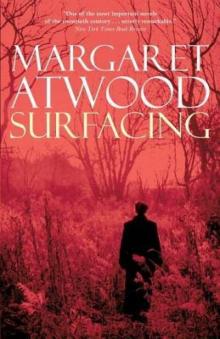 Surfacing
Surfacing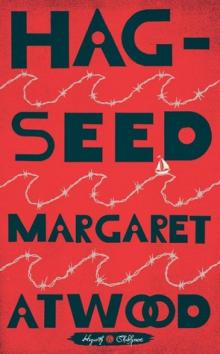 Hag-Seed
Hag-Seed Oryx and Crake
Oryx and Crake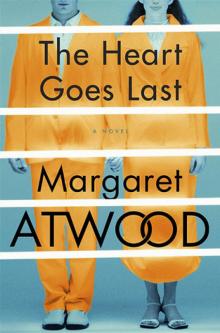 The Heart Goes Last
The Heart Goes Last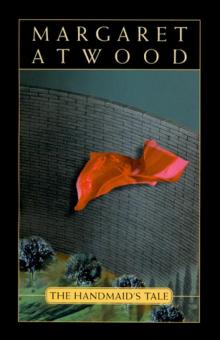 The Handmaid's Tale
The Handmaid's Tale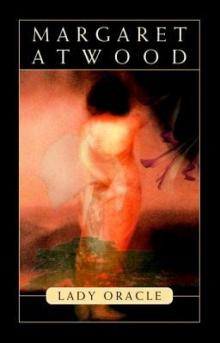 Lady Oracle
Lady Oracle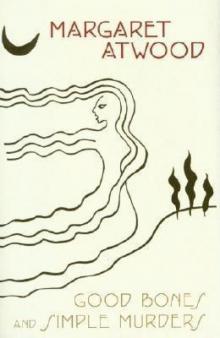 Good Bones and Simple Murders
Good Bones and Simple Murders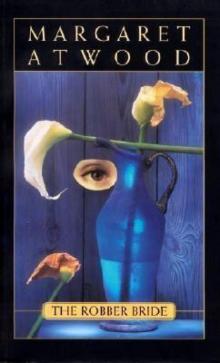 The Robber Bride
The Robber Bride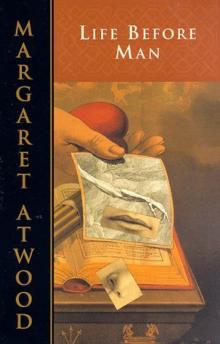 Life Before Man
Life Before Man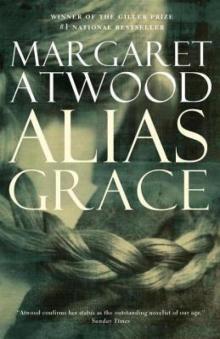 Alias Grace
Alias Grace The Blind Assassin
The Blind Assassin Cat's Eye
Cat's Eye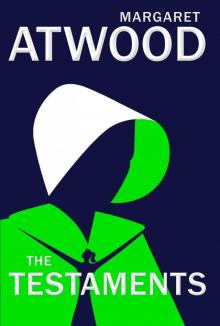 The Testaments
The Testaments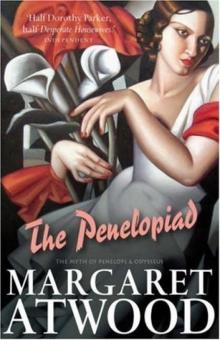 The Penelopiad
The Penelopiad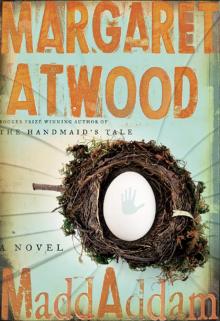 MaddAddam
MaddAddam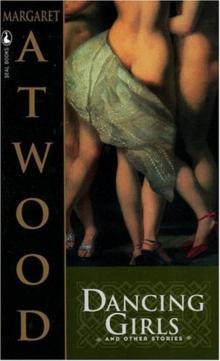 Dancing Girls & Other Stories
Dancing Girls & Other Stories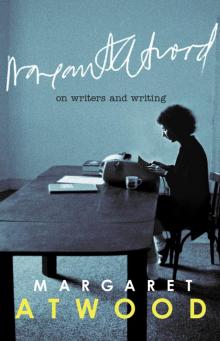 On Writers and Writing
On Writers and Writing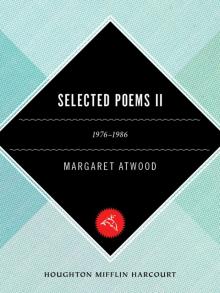 Selected Poems II (1976-1986)
Selected Poems II (1976-1986) Wilderness Tips
Wilderness Tips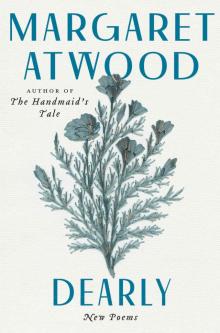 Dearly
Dearly The Tent
The Tent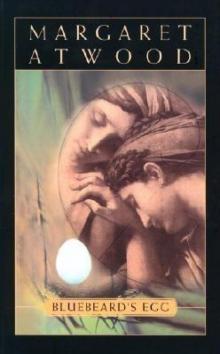 Bluebeard's Egg
Bluebeard's Egg The Edible Woman
The Edible Woman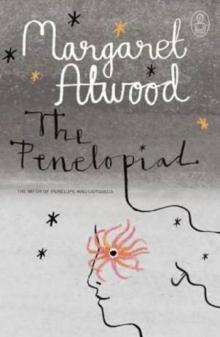 The Penelopiad: The Myth of Penelope and Odysseus
The Penelopiad: The Myth of Penelope and Odysseus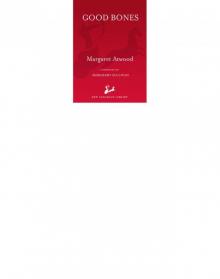 Good Bones
Good Bones I Dream of Zenia with the Bright Red Teeth
I Dream of Zenia with the Bright Red Teeth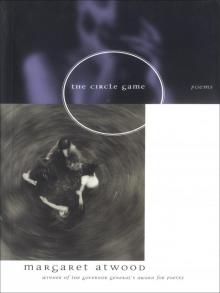 Circle Game
Circle Game Choke Collar: Positron, Episode Two
Choke Collar: Positron, Episode Two Stone Mattress: Nine Tales
Stone Mattress: Nine Tales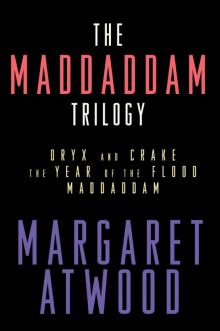 The MaddAddam Trilogy
The MaddAddam Trilogy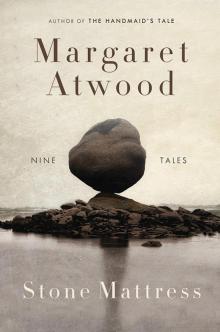 Stone Mattress
Stone Mattress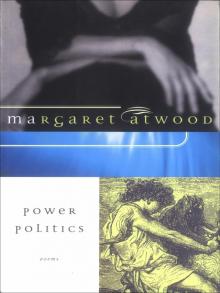 Power Politics
Power Politics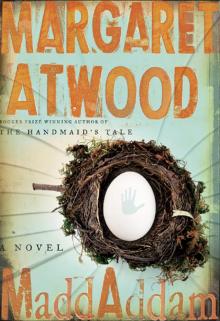 MaddAddam 03 - MaddAddam
MaddAddam 03 - MaddAddam I’m Starved for You (Kindle Single)
I’m Starved for You (Kindle Single)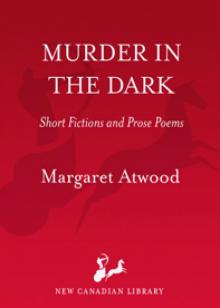 Murder in the Dark
Murder in the Dark In Other Worlds
In Other Worlds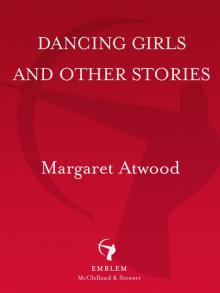 Dancing Girls
Dancing Girls Moral Disorder
Moral Disorder